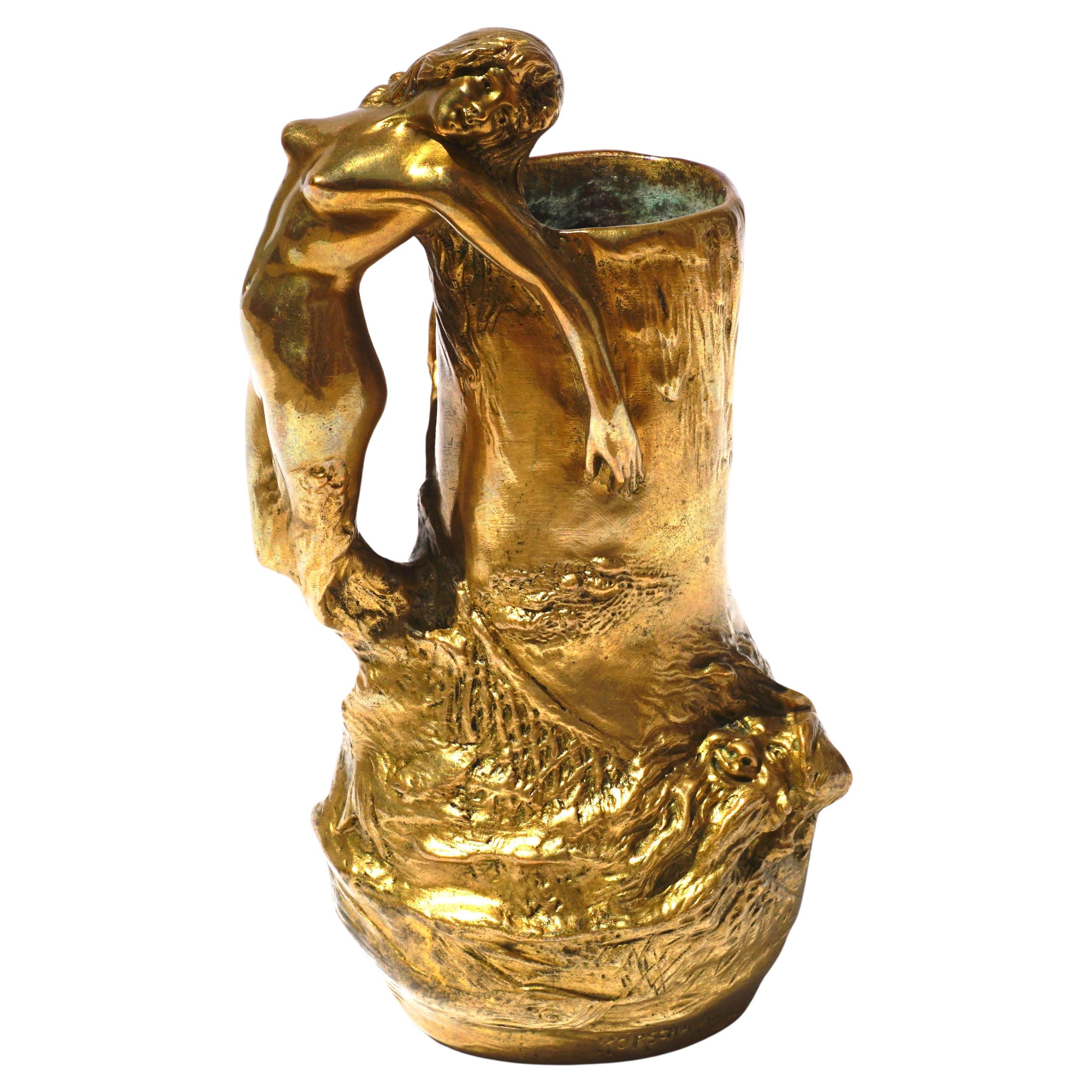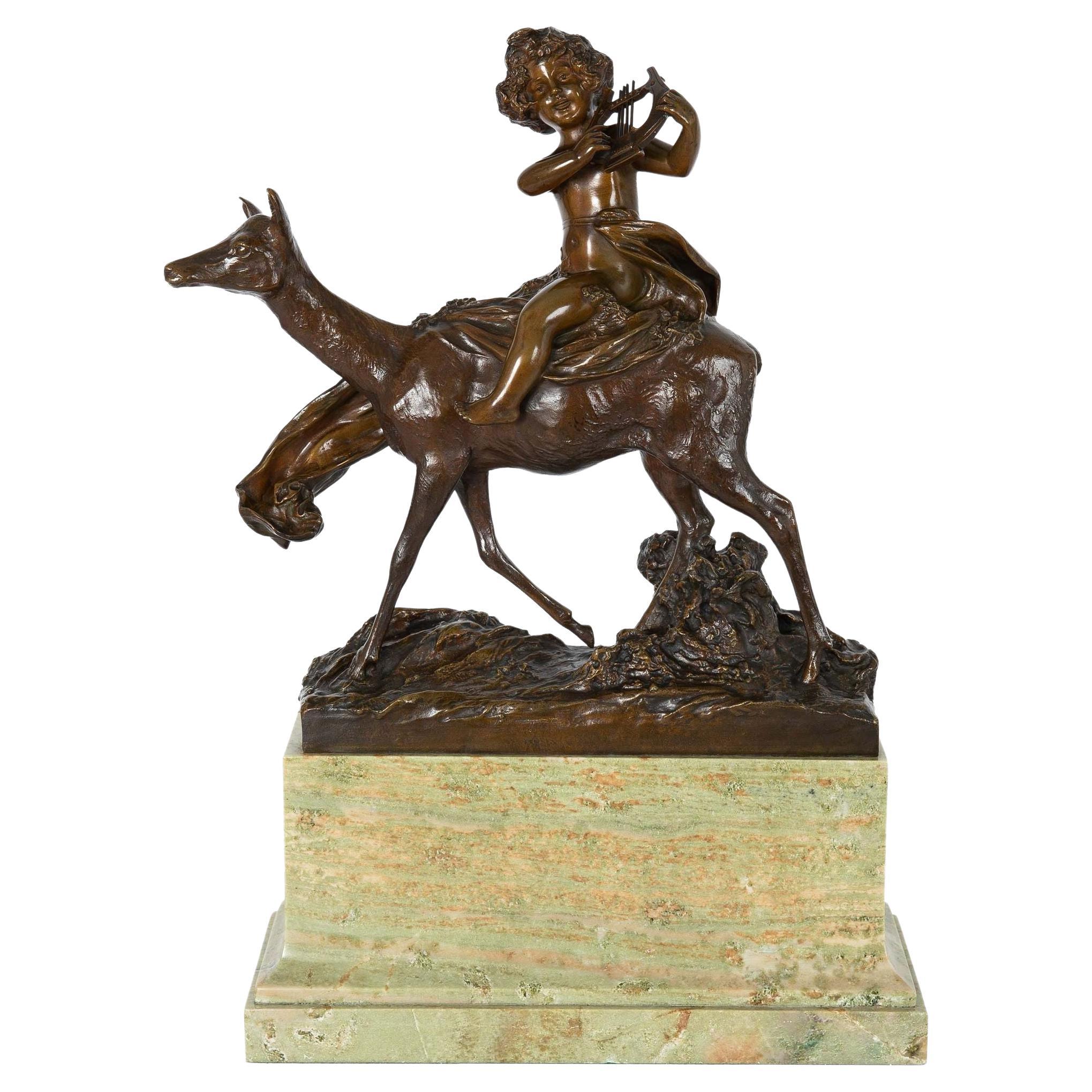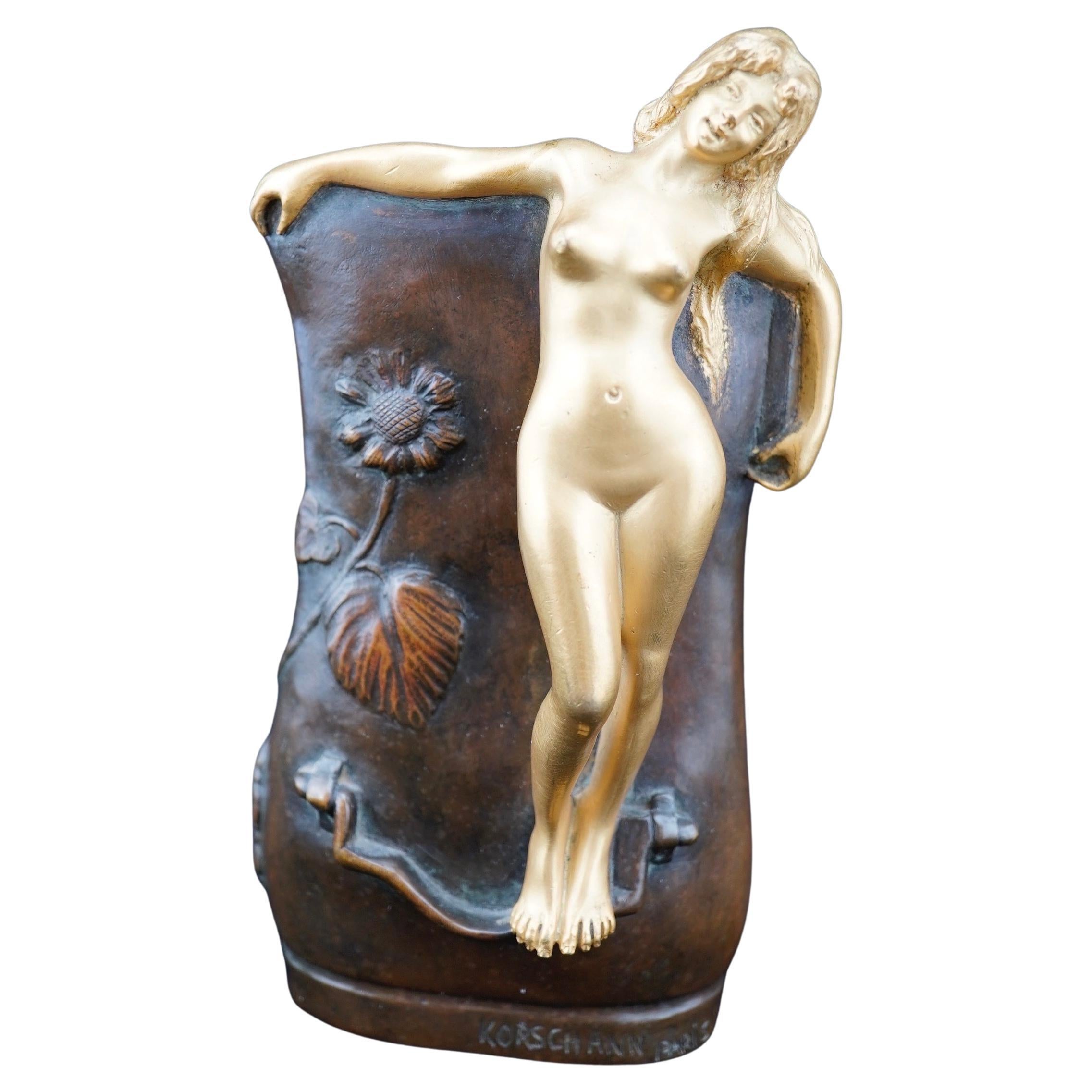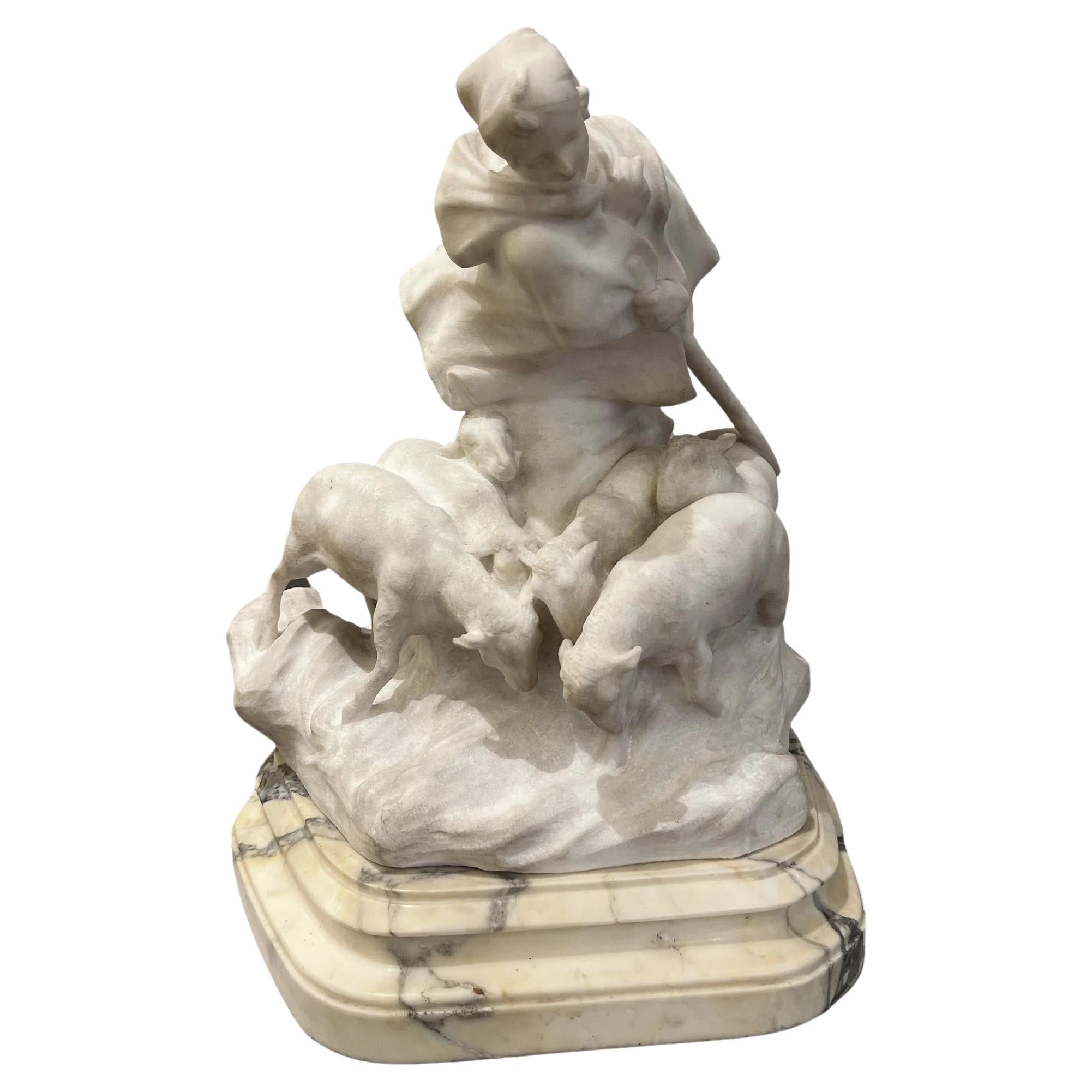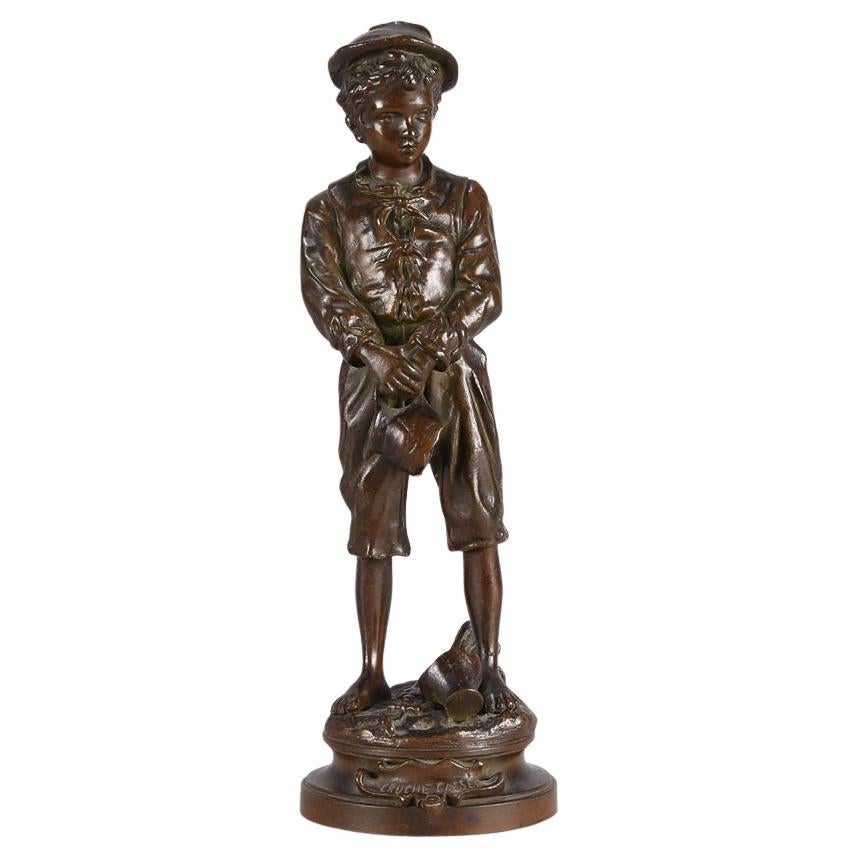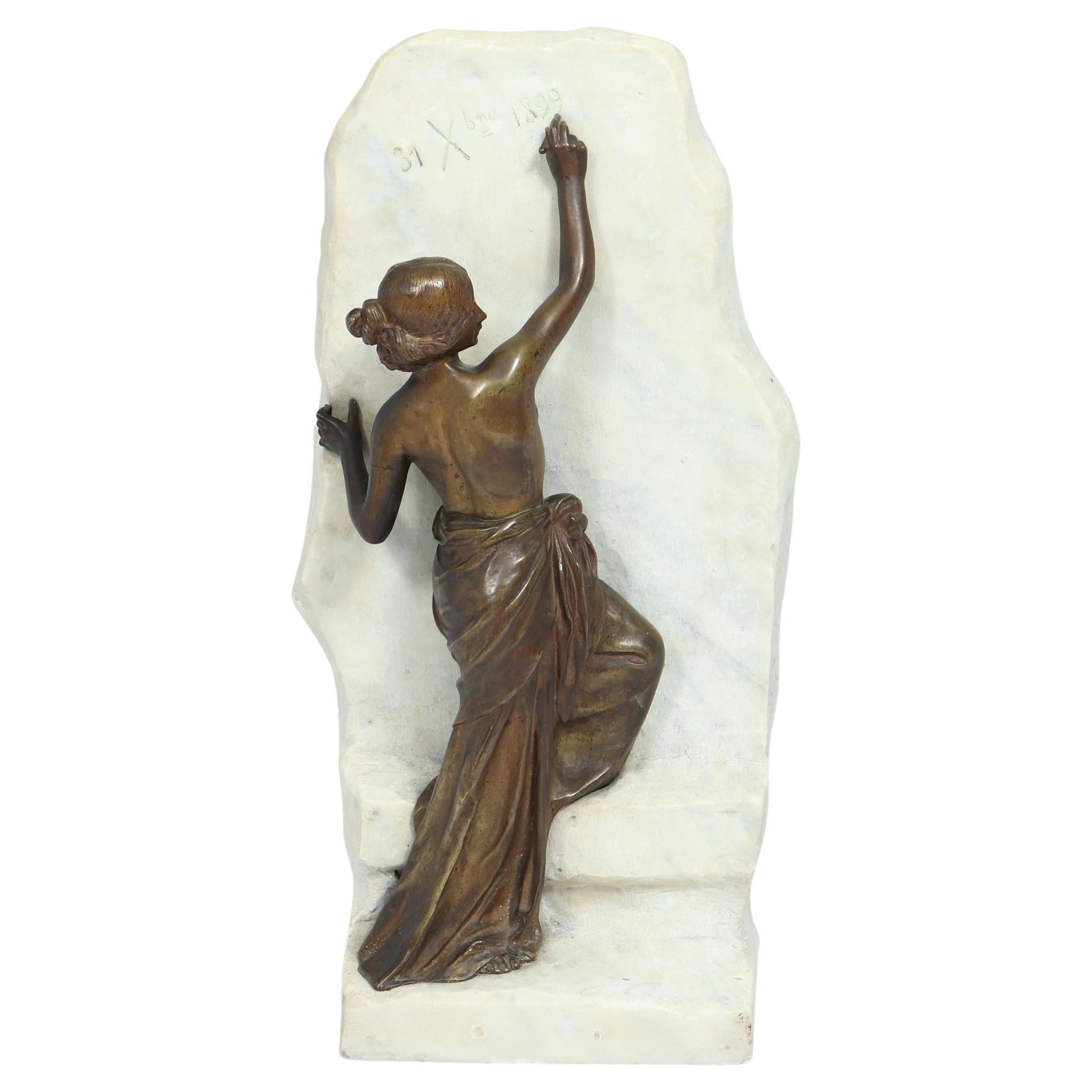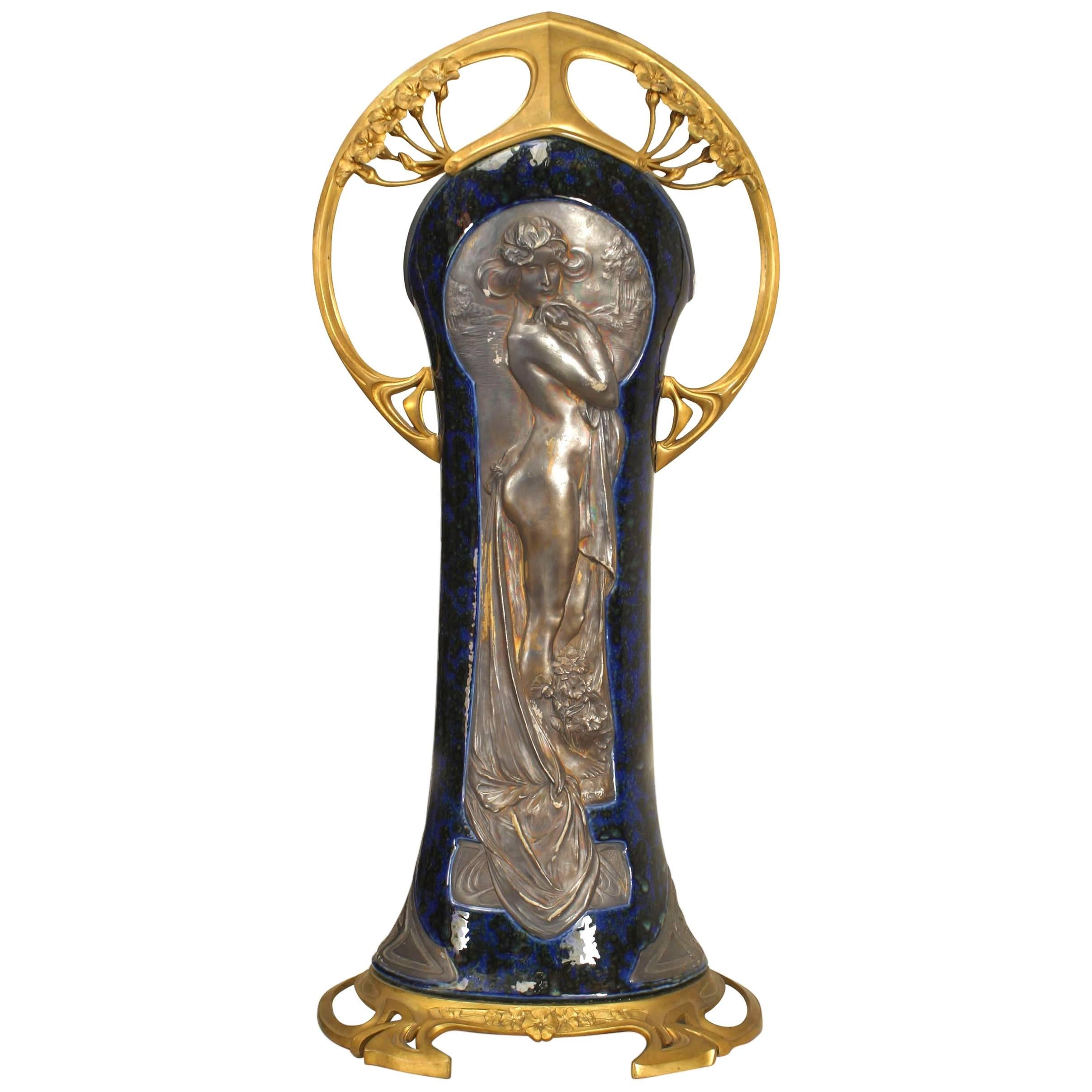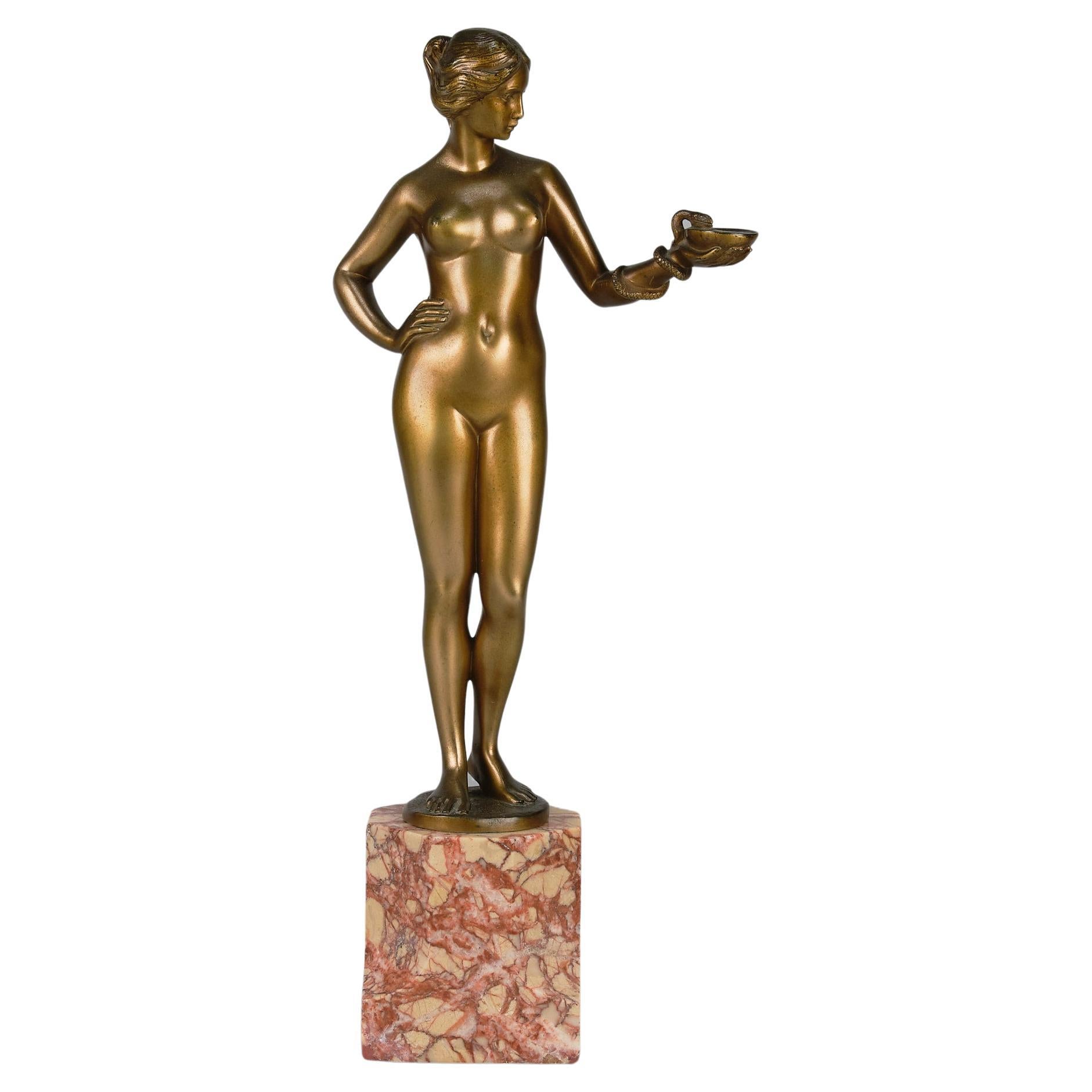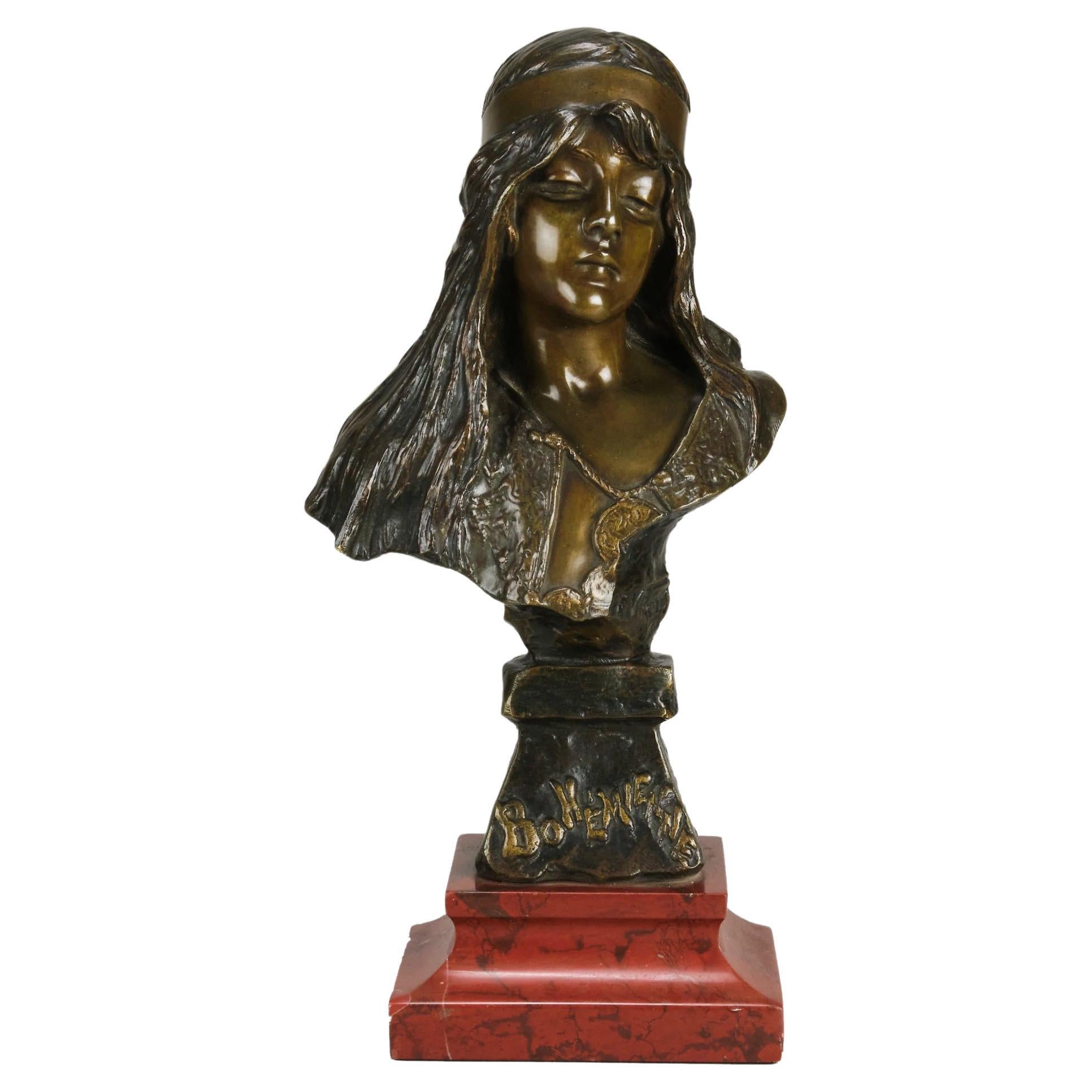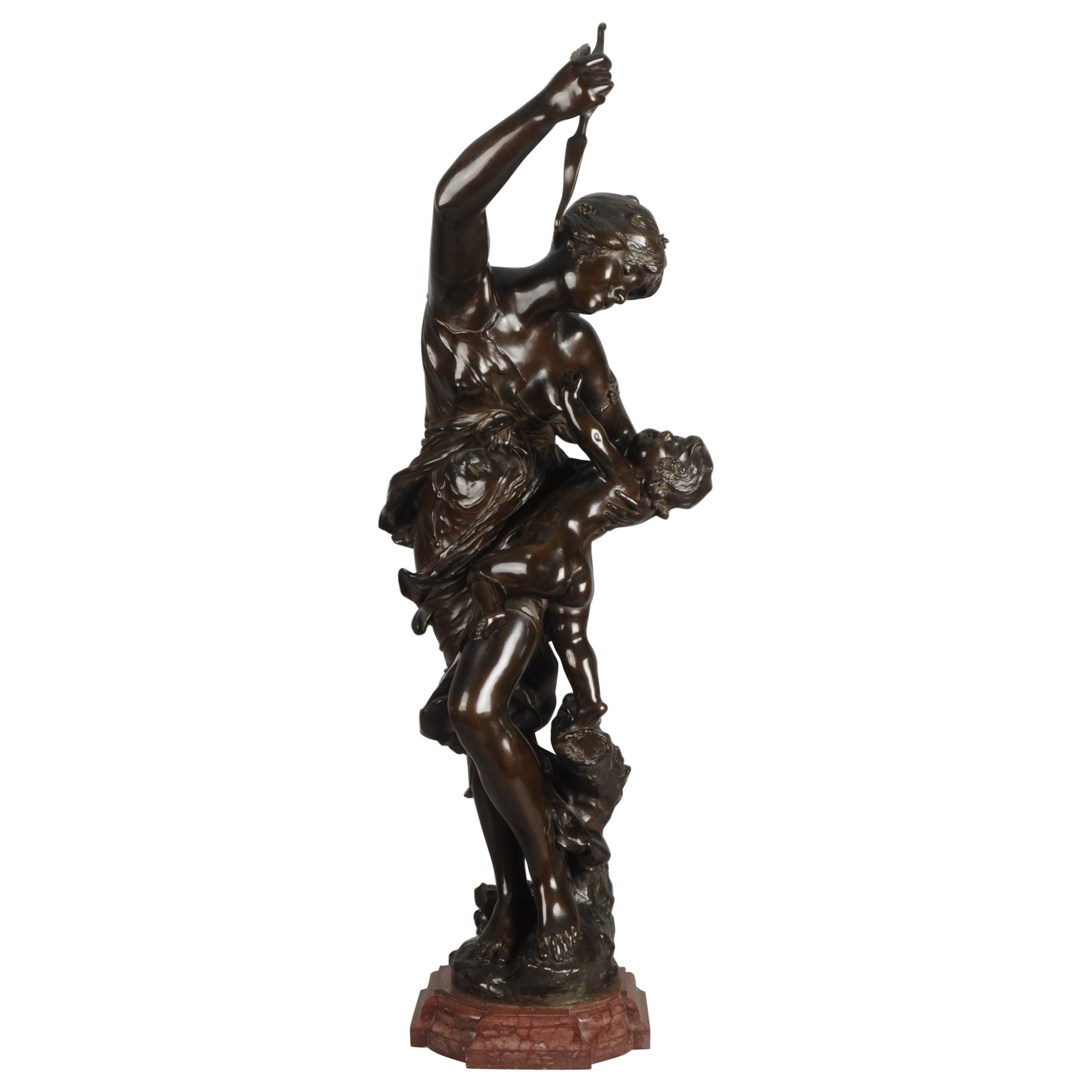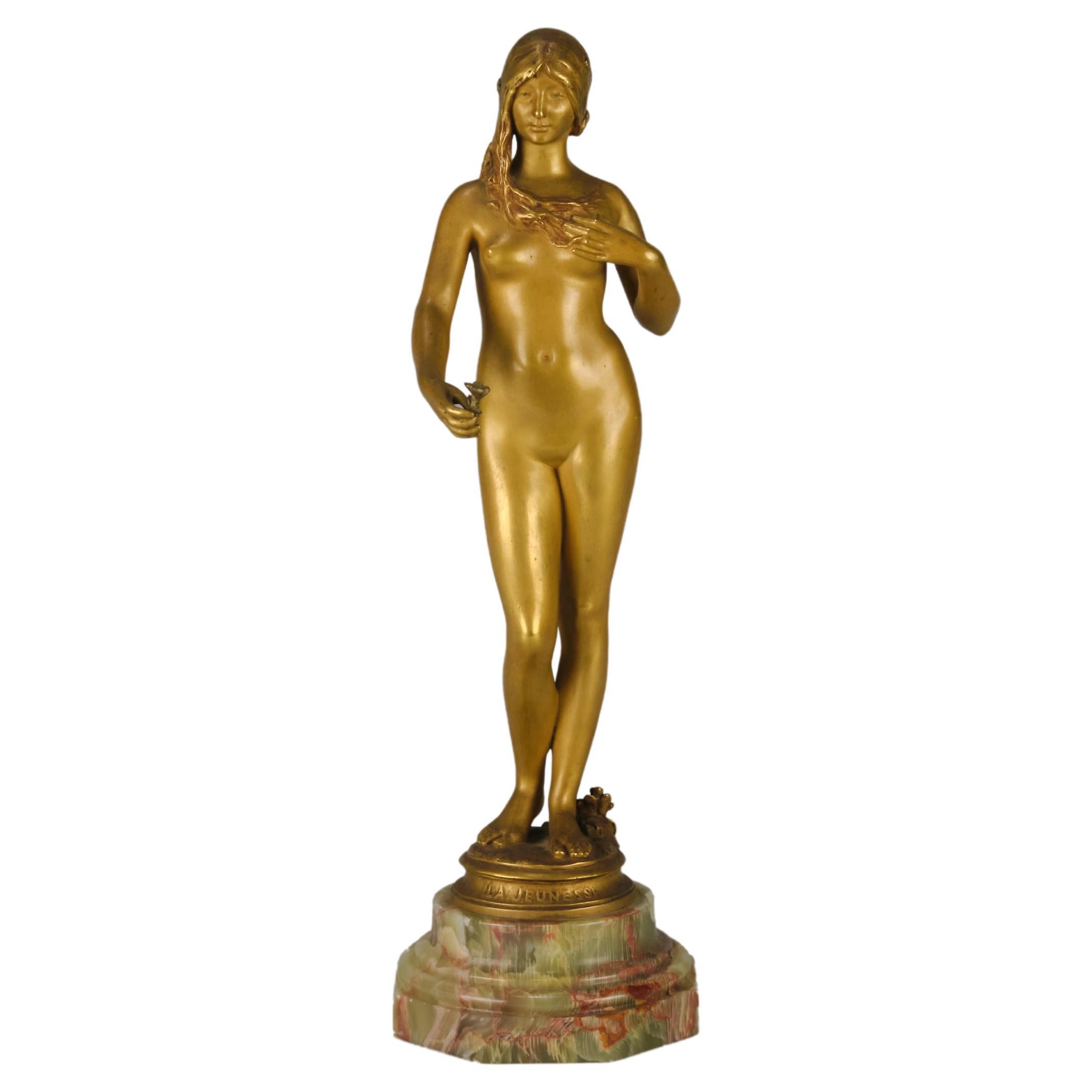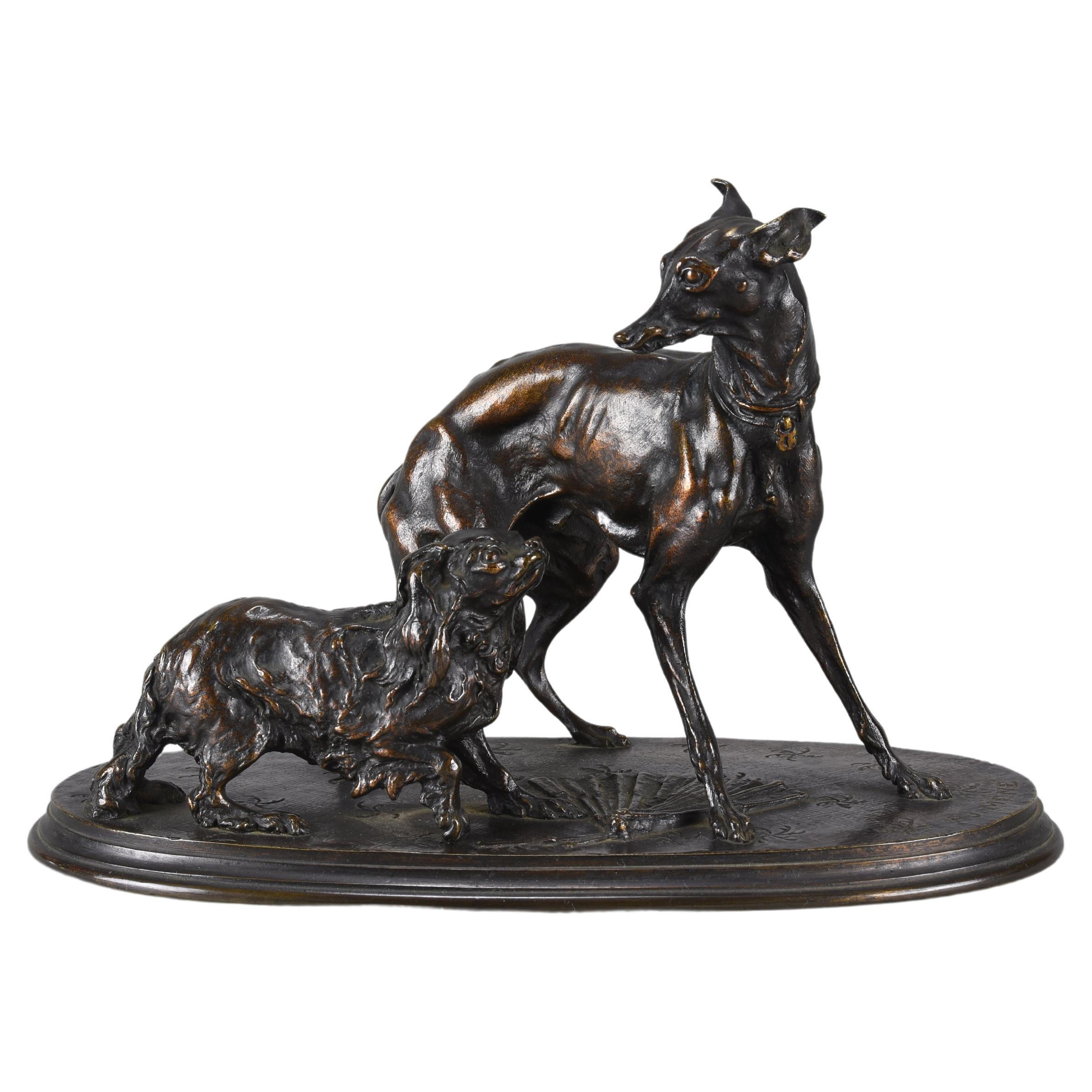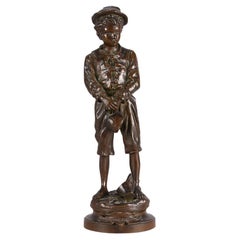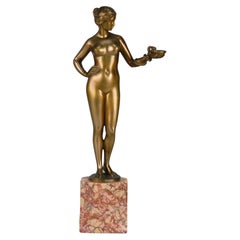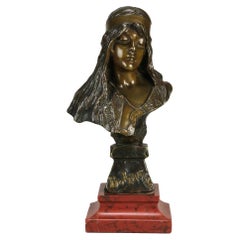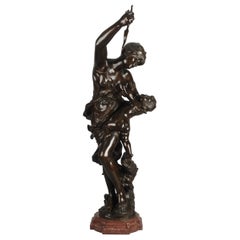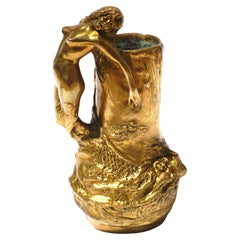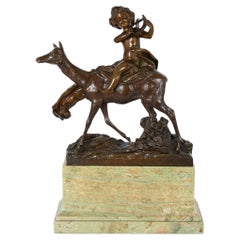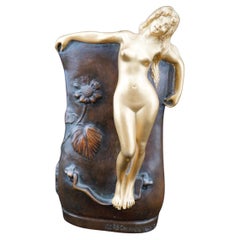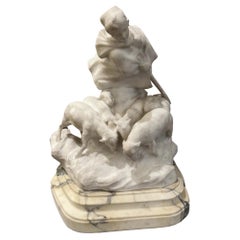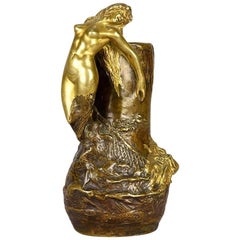
Art Nouveau Bronze Entitled 'Femme Solifleur' by Charles Korschann
View Similar Items
Want more images or videos?
Request additional images or videos from the seller
1 of 11
Art Nouveau Bronze Entitled 'Femme Solifleur' by Charles Korschann
About the Item
- Creator:Charles Korschann (Sculptor)
- Dimensions:Height: 6.7 in (17 cm)Width: 0 in (0.01 mm)Depth: 0 in (0.01 mm)
- Style:Art Nouveau (Of the Period)
- Materials and Techniques:
- Place of Origin:
- Period:
- Date of Manufacture:1890
- Condition:Please note that our items are genuine antiques with considerable age. It is therefore normal that they will show some signs of wear and handling to the surface. This change to the surface is known as 'patina' and confirms the age of the item.
- Seller Location:London, GB
- Reference Number:Seller: SKU 78161stDibs: LU3216310037591
About the Seller
5.0
Gold Seller
Premium sellers maintaining a 4.3+ rating and 24-hour response times
Established in 1936
1stDibs seller since 2017
78 sales on 1stDibs
Typical response time: 3 hours
Authenticity Guarantee
In the unlikely event there’s an issue with an item’s authenticity, contact us within 1 year for a full refund. DetailsMoney-Back Guarantee
If your item is not as described, is damaged in transit, or does not arrive, contact us within 7 days for a full refund. Details24-Hour Cancellation
You have a 24-hour grace period in which to reconsider your purchase, with no questions asked.Vetted Professional Sellers
Our world-class sellers must adhere to strict standards for service and quality, maintaining the integrity of our listings.Price-Match Guarantee
If you find that a seller listed the same item for a lower price elsewhere, we’ll match it.Trusted Global Delivery
Our best-in-class carrier network provides specialized shipping options worldwide, including custom delivery.More From This Seller
View AllLate 19th Century Art Nouveau Bronze Entitled "Broken Jug" by Charles Anfrie
By Charles Anfrie
Located in London, GB
A very fine late 19th century bronze figure of a young lad dressed in period attire holding a broken jug, with excellent rich brown patina and fabulous hand finished surface detail, signed & titled
ADDITIONAL INFORMATION
Height: 20 cm
Condition: excellent original condition
Circa: 1890
Materials: Bronze
SKU: 8279
ABOUT
Charles Anfrie...
Category
Antique 1890s French Art Nouveau Figurative Sculptures
Materials
Bronze
Art Nouveau Bronze Sculpture Entitled "Cleopatra and Asp" by Schnauder
By Richard Georg Schnauder
Located in London, GB
A very fine early 20th Century gilt bronze figure of the famous Cleopatra with a snake wrapped around her wrist drinking from a bowl. Exhibiting fine colour and excellent hand fi...
Category
Early 20th Century German Art Nouveau Figurative Sculptures
Materials
Marble, Bronze
19th Century Art Nouveau Bronze Bust Entitled "Bohémienne" by Emmanuel Villanis
By Emmanuel Villanis
Located in London, GB
Captivating late 19th century French bronze bust of a beautiful woman, enhanced by the variegated rich brown patination and excellent tactile surface detail, raised on an integral bronze base with raised title to the fore. Signed ?E Villanis and further raised on a breche griotte stepped and shaped marble plinth
ADDITIONAL INFORMATION
Height: 33 cm
Width: 16 cm
Depth: 11 cm
Condition: Excellent Original Condition
circa: 1890
Materials: Bronze
Book Ref: Emmanuel Villanis by Josje Hortulanus-de Mik
Page No: 17
SKU: 8616
ABOUT
Puccini's Opera - La Bohème
SYNOPSIS - A group of friends are living a Bohemian life in Paris and trying to make their livings creating art. Rodolfo, the writer, falls in love with the seamstress, Mimi, while Marcello, the painter, and Musetta, the singer, are the on-and-off-again couple by their sides. When the four are happy, they spend their time celebrating life and love. However, Mimi is revealed to be very ill, and Rodolfo struggles to come to terms with the fact that she will inevitably die. Rodolfo and Mimi break up, and months later, Musetta discovers Mimi extremely sick and close to death. She brings Mimi to Rodolfo and Marcello's apartment. Rodolfo immediately takes her in and tries to nurse her back to health, but he is too late. Almost as soon as the two are reunited and have professed their love for one another, Mimi succumbs to her illness and dies.
Emmanuel Villanis
Emmanuel Villanis was an industrious man. He is believed to have created some 200 to 250 pieces. His oeuvre pre-eminently consisted of busts and full body statues. Most of these were manufactured in bronze, but there are also models in white metal and terra cotta. Different patinas were used. The bronzes were mainly cast by the Societé de Bronzes de Paris and can be recognised by the round stamp...
Category
Antique Late 19th Century French Art Nouveau Busts
Materials
Marble, Bronze
19th Century Art Nouveau Bronze Entitled "Venus & Cupid" by Jean Sul-Abadie
By Jean Abadie
Located in London, GB
A very fine bronze study of Venus taking an arrow from Cupid her son, who at times would shoot his arrows without meaning or reason into the hearts of men, igniting their desire. Exhibiting excellent rich brown patina and good detail, signed Sul Abadie and stamped.
Additional information
Height: 93 cm
Condition: excellent condition
Circa: 1885
Materials: bronze & marble
SKU: 4979
ABOUT
Jean Sul-Abadie
Jean Sul-Abadie (Born 1850 ~ Died 15th April 1890) was a French artist, a pupil of Jouffroy and Falguière. Specialising in bronze sculpting in the Art Nouveau style. He made his Salon debut in 1872.
Cupid & Venus
Different tales exist about the origin of Venus and Cupid. Some say that Venus, the goddess of love and beauty, had a love affair with Mars, the god of war. Out of this relationship, Cupid was born. In the following painting you see Venus with Mars, who is being disarmed by Cupid.
Cupid has attributes from both of his parents. Like his mother he is considered to be the god of love, or more precisely, the god of falling in love. He is portrayed as an innocent little child with bow and arrows. He shoots arrows to the heart, and awakening a love that you’re powerless to resist.
In classical mythology, Cupid (Latin Cupido, meaning “desire”) is the god of desire, erotic love, attraction and affection. He is often portrayed as the son of the love goddess Venus and the war god Mars, and is known in Latin also as Amor (“Love”). His Greek counterpart is Eros.
Although Eros is in Classical Greek art as a slender winged youth, during the Hellenistic period, he was increasingly portrayed as a chubby boy. During this time, his iconography acquired the bow and arrow that represent his source of power: a person, or even a deity, who is shot by Cupid’s arrow is filled with uncontrollable desire. In myths, Cupid is a minor character who serves mostly to set the plot in motion. He is a main character only in the tale of Cupid and Psyche, when wounded by his own weapons he experiences the ordeal of love. Although other extended stories are not told about him, his tradition is rich in poetic themes and visual scenarios, such as “Love conquers all” and the retaliatory punishment or torture of Cupid.
In art, Cupid often appears in multiples as the Amores, or amoriniin the later terminology of art history, the equivalent of the Greek erotes. Cupids are a frequent motif of both Roman art and later Western art of the classical tradition. In the 15th century, the iconography of Cupid starts to become indistinguishable from the putto.
Cupid continued to be a popular figure in the Middle Ages, when under Christian influence he often had a dual nature as Heavenly and Earthly love. In the Renaissance, a renewed interest in classical philosophy endowed him with complex allegorical meanings. In contemporary popular culture, Cupid is shown drawing his bow to inspire romantic love, often as an icon of Valentine’s Day.
Venus is the Roman goddess whose functions encompassed love, beauty, sex, fertility, prosperity, victory, and desire. In Roman mythology, she was the mother of the Roman people through her son, Aeneas, who survived the fall of Troy...
Category
Antique Late 19th Century French Art Nouveau Figurative Sculptures
Materials
Breccia Marble, Bronze
Early 20th Century Art Nouveau Bronze Entitled "La Jeuneuse" by Antonin Carlès
By Antonin Carlès
Located in London, GB
A delightful Art Nouveau early 20th Century gilt bronze figure of a very beautiful young lady holding a flower in her right hand, the surface of the bronze exhibiting fine detail and...
Category
Antique Early 1900s French Art Nouveau Figurative Sculptures
Materials
Bronze
Anamilier Bronze Entitled "Greyhound and King Charles Spaniel" by P J Mêne
By Pierre Jules Mêne
Located in London, GB
Delightful mid 19th Century French Animaliers bronze study of a playful Greyhound and King Charles Spaniel, with rich brown rubbed to a golden colour and fine hand chased surface det...
Category
Antique 1870s Art Nouveau Animal Sculptures
Materials
Bronze
You May Also Like
Charles Korschann Art Nouveau Gilt Bronze Nude
By Charles Korschann
Located in Dallas, TX
Charles Korschann Czechoslovakian
Art Nouveau Gilt-Bronze Figural Bud Vase. Cast from a model by Charles (Karl) Korschann, circa 1899, of urn form, with a handle in the form of a...
Category
Antique 1890s Czech Art Nouveau Figurative Sculptures
Materials
Bronze
“Putto on Doe” Art Nouveau Bronze Sculpture by Charles Korschann
By Charles Korschann
Located in Shippensburg, PA
CHARLES KORSCHANN
Czech, 1872-1943
Putto Riding a Doe
Medium-brown patinated bronze over an original marble base Signed "CH. KORRSCHANN." and sealed with foundry cachet for Louchet
Item # 301LCJ14L
A very fine lifetime casting of Charles Korschann's Putto Riding a Doe, the model is steeped in the elements of the Art Nouveau with a distinct celebration of the naturalistic. The putto grasps a simple harp in his hand while a loose garment bound in a belt encircling his waist billows in the unseen wind. The doe looks on with disinterest, unconcerned about its surroundings and almost at one with its rider. It is a carefully composed idealization of the natural world and the potential for harmony between man and beast. The casting is exquisite, typical of work from Louchet, and is finished in a medium-brown translucent patina.
Charles Korschann
Born in Brno, Monrovia in 1872 as Charles Korschmann, later dropping the "m" to appear less Germanic, he studied at the fine arts academies of Vienna, Berlin and Paris before finally establishing himself in Paris in 1894. He spent his entire career working in Paris, exhibiting at the 1900 Exposition Universelle where he was awarded a Bronze Medal and from 1894 through 1905 at the Société des Artistes Français.
His work is very distinctive and immediately recognizable, a most important trait as an artist and a particular accomplishment in light of the output of his contemporaries. He was to sculpture what Alphonse Mucha was to graphics, both men originating from the same province in Czechoslovakia and having similar influences in Paris. It is rather fitting that he would execute a bust of Alphonse Mucha for the Museum of Brno in honor of his accomplishments.
Artist Listings...
Category
20th Century French Art Nouveau Animal Sculptures
Materials
Marble, Bronze
Art Nouveau Gilt and Patinated Bronze Nude Figure Bud Vase by Charle Korschann.
By Charles Korschann
Located in Sarasota, FL
Art Nouveau Gilt and Patinated bronze figural bud vase by well listed
sculptor Charles Korschann. Signed at base.
Category
Antique 1890s French Art Nouveau Figurative Sculptures
Materials
Bronze
« Shepherdess and her sheep », Charles Korschann, Paris, France, circa 1900
By Charles Korschann
Located in Paris, FR
Shepherdess and her sheep », sculpture by Charles Korschann (1872-1943), on a fine scrolled marble base.
Direct carving on alabaster, unique piece.
Charles Korschann ((1872-1943) was...
Category
Early 20th Century French Art Nouveau Figurative Sculptures
Materials
Marble, Alabaster
Art Nouveau Bronze Femme Écrivant by Julien Causse
By Julien Causse
Located in Paddock Wood Tonbridge, GB
ART NOUVEAU BRONZE BY JULIEN CAUSSE
A stunning sculpture that embodies the elegance of the Art Nouveau period—an exquisite representation of a woman thoughtfully inscribing the date...
Category
Antique 1890s French Art Nouveau Figurative Sculptures
Materials
Carrara Marble, Bronze
French Art Nouveau Korschann Purple Porcelain Vase
By Charles Korschann
Located in Queens, NY
French Art Nouveau purple porcelain vase with female nude figure and bronze dore floral top and bottom (Korschann)
Category
Antique Late 19th Century French Art Nouveau Vases
Materials
Bronze
Recently Viewed
View AllMore Ways To Browse
Solifleur Vase
Louchet Bronze
Art Nouveau Bronze Vase With Nude
Charles Louchet
French Biscuit
Antique Plaster Hands
Black Bronze Statues
Plaster Sculpture Paris
Designer Art Deco Dresses
Thai Teak
Antique Italian Bronze Statue
Antique Carved Maiden
Carl Bronze
Gold Sphinx
Marble Cupid
Blue White Figurines
Metal Ship Sculpture
Art Deco Sculpture Relief
